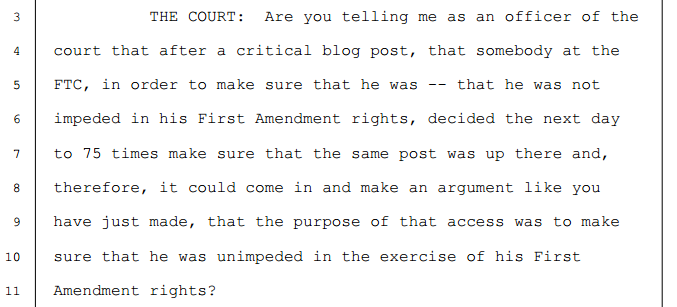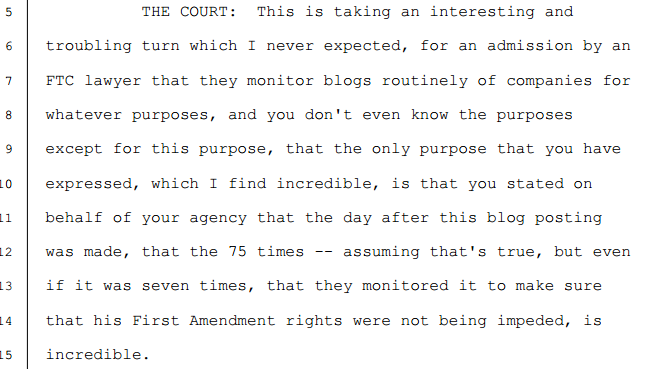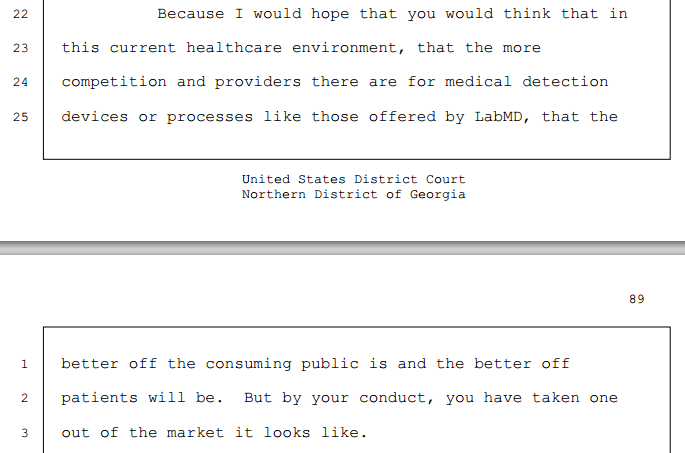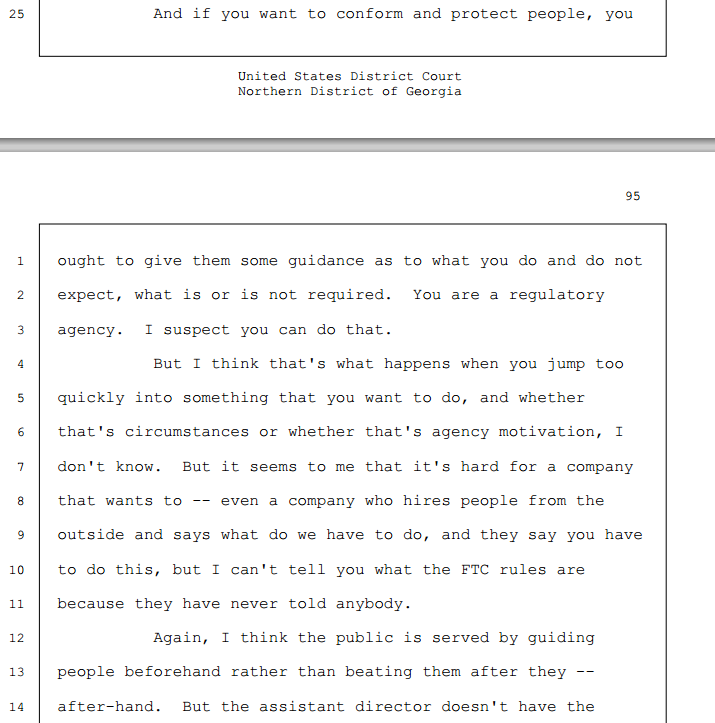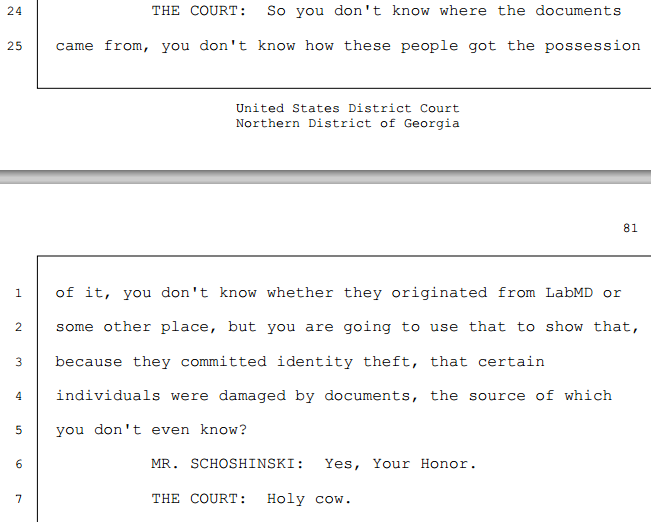Read the full story: National Law Journal
The FTC’s smoking gun: a file with information about 9,300 consumers, including names, birth dates, social security numbers and medical tests results for conditions such as cancer. According to the FTC complaint, a LabMD employee installed a peer-to-peer file sharing application on her work computer and inadvertently shared the file.
The file was found by Tiversa—but LabMD lawyers say just how that happened is unclear. Tiversa “has patented technology which allows it to search peer-to-peer networks in an unprecedented breadth and volume,” William Sherman II, a partner at Dinsmore & Shohl retained by non-profit watchdog Cause of Action to represent LabMD, said during opening statements on May 20.
Sherman said LabMD employees couldn’t find the file on the peer-to-peer network even when searching using its precise name. “The evidence will show that the only entity able to find this file has patented technology,” Sherman said.
